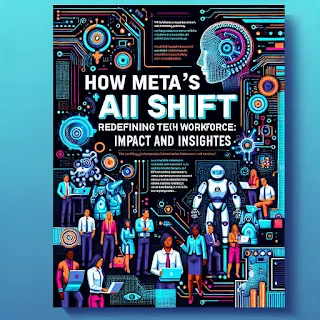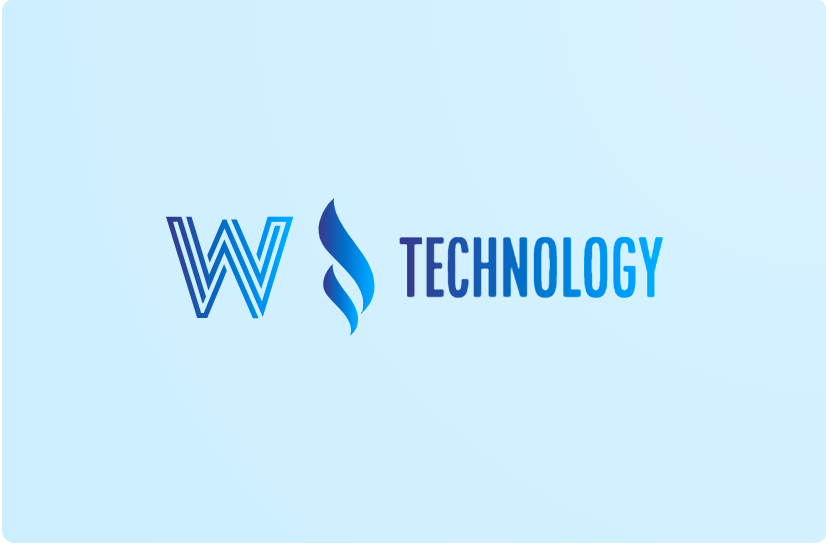Meta's AI-Driven Workforce Reduction: The Future of Tech Jobs and Workforce Transformation
Meta Platforms Inc., formerly known as Facebook, has recently made headlines with its decision to lay off 3,600 employees, marking another significant moment in the ongoing trend of AI-driven workforce reductions across the tech industry. This decision, framed by CEO Mark Zuckerberg as part of a move to “cut underperforming workers,” has sparked debates within the industry and among former employees who argue that the layoffs are driven by the company's shift toward prioritizing artificial intelligence (AI) technologies.
In this blog, we’ll delve deeper into the impact of Meta’s AI-driven workforce reduction, explore the broader implications for the tech industry, and provide insights on how we can expect the workforce landscape to evolve in the coming years.
Understanding Meta’s AI-Driven Strategy
Meta has been clear about its vision of transitioning to AI-powered services, a strategy that aims to ensure the company remains at the forefront of technological innovation. Zuckerberg has been vocal about his belief in AI’s transformative power, particularly in areas like automation, efficiency, and creating next-gen user experiences. The layoffs appear to align with the company's broader goal to integrate AI into its operations, potentially replacing tasks previously handled by human employees with more efficient, automated processes.
The shift to AI doesn't just include automation of simple tasks. Meta is looking to harness AI to streamline processes and reduce operational costs across various departments. In an era where AI can analyze vast amounts of data and make decisions faster and more accurately than humans, Meta's decision to reallocate resources to AI technology makes sense from a business perspective. However, this has significant implications for the workforce, especially for those whose roles are now being replaced or minimized by AI.
The Impact on Employees
The immediate impact of Meta’s AI-driven workforce reduction is felt by thousands of laid-off workers who are now faced with the challenge of finding new employment. While the company has assured the public that it is providing severance packages, health benefits, and career transition support, the broader issue remains: AI is increasingly encroaching on jobs that were once secure in the tech industry.
This trend isn’t unique to Meta. Companies across the tech sector are increasingly looking to AI to enhance productivity while minimizing human resources. In Meta’s case, this shift could lead to more job displacements in the future, especially in positions that rely heavily on repetitive tasks, such as data entry, content moderation, and customer support.
For workers, the reality is that AI is transforming not only the roles they perform but also the skills they need to remain competitive in the job market. Those who are laid off must now adapt to a new era where AI knowledge, data science, and programming skills are crucial. The traditional tech job roles are evolving, and workers need to be prepared to upskill or transition into new fields altogether.
The Broader Impact on the Tech Industry
Meta’s move to prioritize AI also serves as a bellwether for the rest of the tech industry. As companies like Meta invest heavily in AI-driven solutions, we can expect a ripple effect across the entire workforce. For example, companies that previously employed large teams of engineers for tasks like coding and testing may now use AI tools to automate these processes, leading to further job reductions.
However, it’s important to note that while AI is certainly causing job displacement, it is also creating new opportunities. AI-driven innovations often require new kinds of expertise, and tech companies are increasingly hiring specialists in AI, machine learning, and data science. In fact, job growth in AI-related roles is projected to continue for the foreseeable future. The question is not necessarily about AI taking all jobs but about how workers can adapt to the new skill sets required by the rapidly changing landscape.
What Does the Future Hold for Tech Jobs?
As AI continues to develop and integrate into various industries, the workforce will undergo a significant transformation. The key to navigating this future lies in education and adaptability. Workers must not only learn new technical skills but also become familiar with how AI and automation can complement human capabilities, rather than simply replace them. Here are a few observations about how the future of tech jobs might look:
- AI-Augmented Workforces: Rather than seeing widespread layoffs, companies will focus on augmenting their workforce with AI tools. This means that while some jobs may disappear, others will evolve. Workers who can leverage AI tools effectively will remain valuable.
- Upskilling and Reskilling: It is crucial for workers in the tech industry to embrace continuous learning. Upskilling in areas like AI, machine learning, and cloud computing will allow workers to stay competitive in an AI-driven economy.
- The Rise of AI Ethics and Governance: With AI becoming more integrated into business operations, the need for ethical frameworks and governance will grow. There will be an increasing demand for professionals who can navigate the complex ethical considerations associated with AI deployment, such as bias, privacy concerns, and accountability.
- Global Workforce Dynamics: AI’s rise in the workplace could also lead to shifts in the global workforce, as companies may look to leverage AI for remote work solutions or offshore jobs previously handled by large teams.
Conclusion: Navigating the AI-Driven Workforce
Meta’s AI-driven workforce reduction is a reminder of the broader trend that is reshaping the tech industry. While AI offers numerous benefits, including increased productivity and efficiency, it also presents challenges for workers whose jobs are at risk. For both employees and employers, the focus must shift toward adaptation—embracing AI as a tool that enhances human capabilities while ensuring that workers have access to the skills and opportunities they need to thrive in an increasingly automated world.
For those seeking to future-proof their careers, it’s important to view this shift as an opportunity to upskill and embrace the potential of AI rather than fear its impact. The key to surviving and thriving in this new era of work will be the ability to innovate, learn, and adapt.










0 Comments